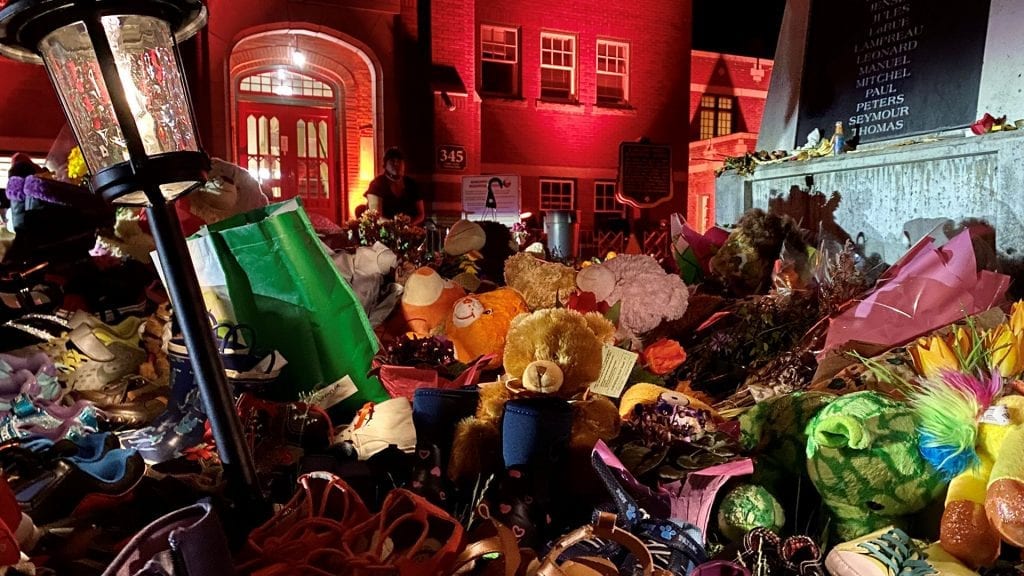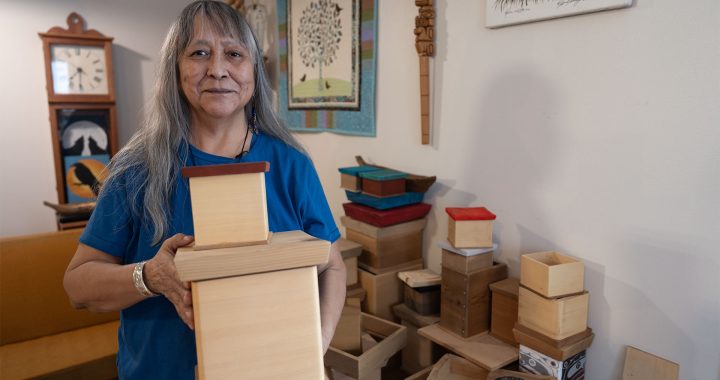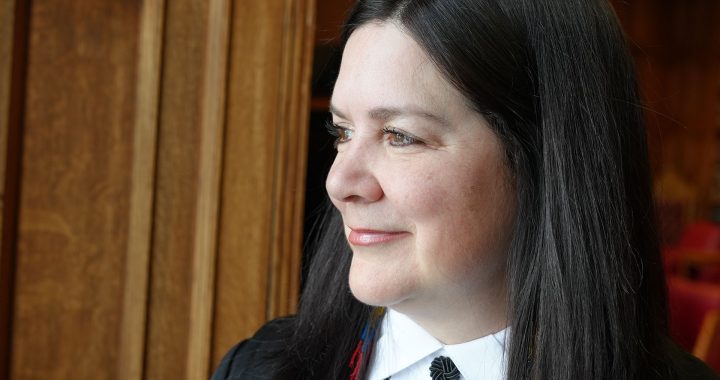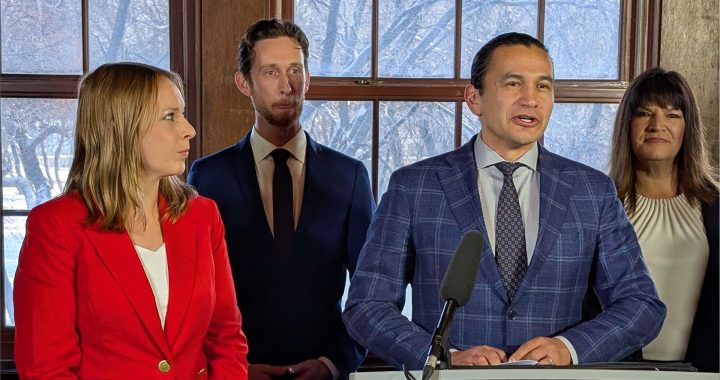
Canada announced millions of dollars to assist the search for unmarked graves, and healing. Photo: APTN.
This article contains details about residential schools. The Indian Residential Schools Crisis Line (1-866-925-4419) is available 24 hours a day for survivors experiencing pain or distress about their residential school experiences.
An interim report from an international group hired to provide advice on identifying and locating the unmarked graves of children who attended residential schools says Canada should continue funding searches beyond 2025.
The report from the International Commission on Missing Persons, based in The Hague, covers the work done so far and suggests next steps.
It also recommends there should be a multijurisdictional dialogue to support the needs of communities and for Ottawa to ratify the United Nations International Convention for the Protection of All Persons from Enforced Disappearance.
“States have the responsibility to find all missing persons, regardless of their background,” Kathryne Bomberger, director-general of the commission, said Thursday in Ottawa.
Ottawa launched the Residential Schools Missing Children Community Support Fund in June 2021. The money is for communities and families to research, locate and document burial sites, as well as to memorialize the deaths of children and return remains home.
The initiative is funded until 2025.
Crown-Indigenous Relations and Northern Affairs Canada said it was unable to provide a comment Thursday.
Read more:
Probing the past: residential school secrets and archival challenges
How one N.W.T. community is remembering the victims of Sacred Heart Residential School
A national movement to find and commemorate unmarked graves began after ground-penetrating radar detected possible remains at the former Kamloops Residential School in British Columbia in 2021. Many other First Nations began to search the grounds of former residential schools across the country and thousands more possible graves have since been located.
Soon after the initial discovery, the Assembly of First Nations invited the commission to Canada to help provide advice and technical support. Indigenous leaders called for the development of a national legal framework to address the identification of unmarked graves in the context of international criminal law and human rights abuses.
The commission specializes in working with governments and organizations around the world to find people who have disappeared. It conducted such work in Canada after the 2013 Lac-Mégantic rail disaster that left 47 people dead.
The federal government signed a technical agreement with the commission last year. But shortly after the $2-million contract was announced, it was criticized by the National Centre for Truth and Reconciliation and a special interlocutor the government appointed to probe the issue because of the commission’s lack of Indigenous background.
An amended agreement was later signed.
The commission’s report says it conducted eight formal presentations with First Nations, participated in 10 key gatherings and held one-on-one discussions, connecting with about 1,500 Indigenous rights holders and partners.
It also monitored a search at a former residential school site in Manitoba.
Some First Nations requested assistance in “forensic archeology and anthropology, requirements for undertaking an exhumation, and efficient data management in cases of long-term missing persons,” the report says.
Bomberger said the search process for each community is unique but there needs to be a unified strategy to collect and share data. The report says it’s important to support Indigenous-led investigations with technical assistance from the commission.
“It’s a very tough and grueling process to start to think about and find ways we can support without retraumatizing families,” said Sheila North, Canada program manager for the commission.
An estimated 150,000 Indigenous children were forced to attend residential schools across Canada. The Truth and Reconciliation Commission, which looked into the legacy of the schools, found a high rate of death from violence, illness and malnutrition.
North said communities need answers, and that requires ongoing financial support.
The report’s release coincided with a news conference held by Niki Ashton, federal NDP critic for Indigenous Services, with representatives of the commission and some First Nations leaders. Ashton called on the Liberal government to continue funding as long as communities are searching for answers.
“Canada’s response has been less than acceptable,” Ashton said.
Dene National Chief Gerald Antoine said he’s developed a good relationship with the commission. He said residential schools amounted to genocide and a crime.
Families deserve justice, he said.
“The truth is being revealed,” Antoine said. “There are many people who are missing.”










